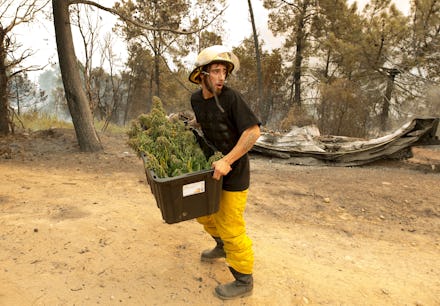When does California's marijuana law go into effect? These are the key dates to know.

On Tuesday, Nov. 8, California voters took to the polls to approve Proposition 64, making it legal for Californians over the age of 21 to smoke marijuana in private and hold up to 28.5 grams of weed or 8 grams of concentrated marijuana in their possession.
The law, however, will take some time to achieve its full effect. While the base provisions making it legal to smoke weed in private throughout the state and be in possession of it went into force on Wednesday, Californians who do not already have a medical marijuana card may need to wait until Jan. 1, 2018. That's when the state will begin issuing retail licenses to allow dispensaries to sell and profit from recreational pot, according to the L.A. Times, which noted black market sales will remain illegal.
Growers, wholesalers and others involved in the marijuana trade will also need to apply for "state licenses for the transportation, storage, distribution and sale of marijuana," according to the Times. California officials will also need to create a Bureau of Marijuana Control inside the state Department of Consumer Affairs to handle this licensing process, meaning that it may take months or years past the Jan. 1, 2018 date for the state's marijuana industry to scale up.
As CBS Sacramento reported, battles over local control of the marijuana industry and regulatory specifics are still under way and may take a long time to resolve.
With the recent election of Republican nominee Donald Trump, who has remained mostly mum on the topic of federal enforcement of marijuana laws, the likelihood of some sort of intervention against the law before it takes full effect is unclear. But Trump has reportedly considered putting a hardliner in charge of the U.S. Department of Justice, such as New Jersey Gov. Chris Christie, who ran in the GOP primaries on promises to shut down legal weed as president.